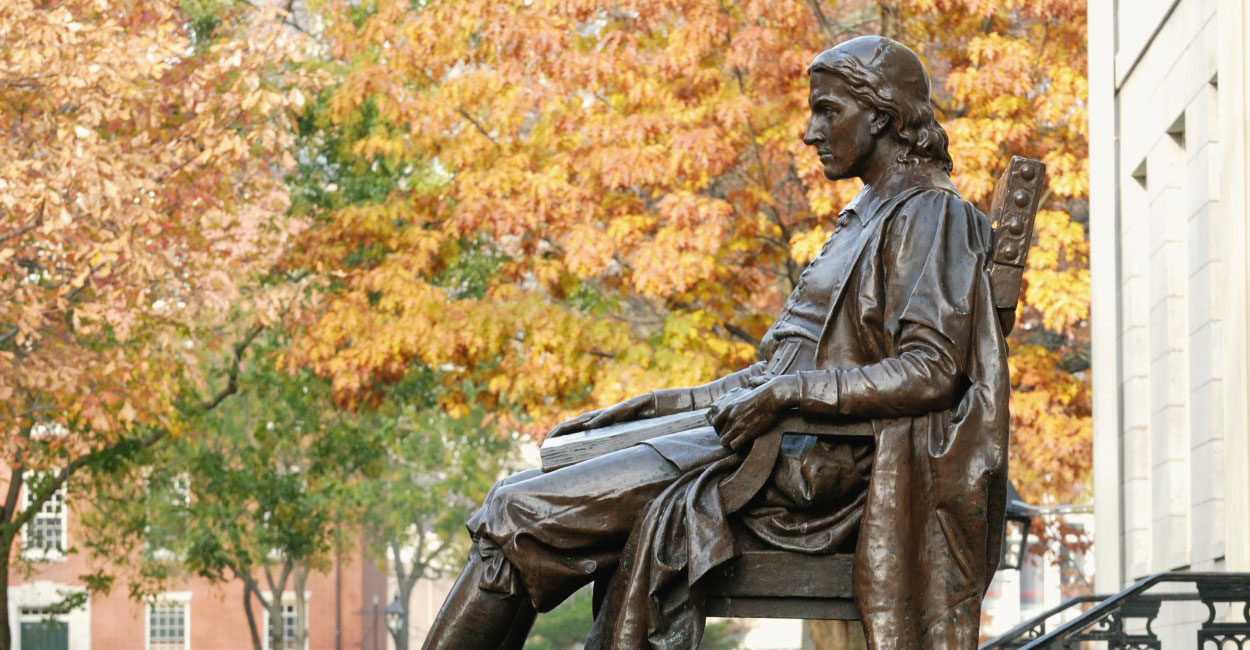Excerpt: What Went Wrong in US Higher Ed? Harvard
Post# of 65629

The American education system was established on the basis of objective truth—what was once called “capital-T Truth”. But that firm grasp of objective truth has been replaced with moral relativism, and specifically, with secular humanism.
As more colleges and universities were established in the 18th century, schools began to adopt new secular humanist ideas. The purpose and meaning of learning has changed from what it was in 1636 to a system that assumes the truth of secular humanism instead.
Today, American universities, particularly Harvard and its sister Ivy League universities, have relinquished their role as mentors for students. For example, in 2013, nearly an entire government class at Harvard was caught cheating, and the professor and teaching assistant were partly to blame for the scandal. In 2015, a student at Yale was called a “bigot” and pressured by peers to leave campus because of her conservative beliefs In Florida, a humanities professor punished a student by giving her “zero” grades on assignments for refusing to agree with his humanist bias.
This antagonism toward diverse opinions is not just seen in universities, but also in the federal government. Last year, colleges and universities receiving Title IX religious accommodation were publicly “shamed” by the Department of Education for not being willing to accommodate to policies that went against their religious beliefs. During the 2015 Obergefell v. Hodges oral argument, the United States solicitor general conceded that religious colleges opposing the new law on religious grounds would struggle to keep their tax-exempt status.
It seems that not only religion but also tolerance has evaporated from most colleges and universities, with the exception of some religious colleges, of which few remain.
The Great Monolith
When students are told by professors what they can and cannot believe, there is no room for authentic diversity. The purpose of moral teaching is not to force students to believe in God or to identify with a particular faith or religion. As Charles W. Eliot said, “The very word ‘education’ is a standing protest against dogmatic teaching.”
Rather, moral instruction teaches students to ask questions addressing the purpose of living. Students are not asking these questions in classrooms today because they are not taught to, and because they are not allowed to.
When tolerance and freedom of thought are removed from the classroom, students stop learning the principles that were once the priorities of universities. Students become less aware of the world around them, less willing to serve others, and less courageous. Yet these students are supposed to be the next generation of leaders.
The secularization of Harvard has meant turning over the third book of the crest and replacing the God of “Veritas” with the god of secular humanism. That change has echoed throughout much of the academy. Consequently, as God has been pushed out of human learning, hostility toward religious freedom in academia has increased dramatically.
Contrary to what universities preach about tolerance and diversity, they have become a hostile place for those who are committed to finding Truth—something Harvard was originally founded for. What is needed most in today’s cultural climate is young minds searching for Truth, and educators willing to help them find it.
 (0)
(0) (0)
(0)